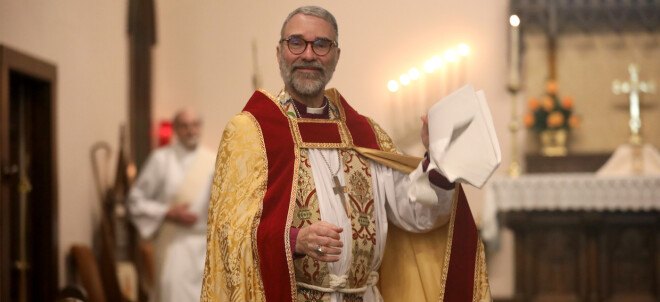Communion Matters XXIII: Southern Africa

While the present topics may seem far from our own context and concerns, communion means that these are descriptions of our Church, and as we dig deeper, we see that we and they face issues which are more similar than one might at first think, in particular, how to come to terms with the culture that is around us and in us.
How might one learn more about Anglicanism in southern Africa? ‘Cry the Beloved Country,’ a classic novel by Alan Paton, is also a movie starring James Earl Jones (1995).
I have four thoughts about the history of Christianity there which have parallels with its form here.
-
Mfecane is a word in Zulu which means the ‘crushing’ or the ‘churning.’ (see Sundkler’s History of Christianity in Africa.). It refers to the social upheaval of the 19th century- migration due to drought and ethnic conflict. (Sometimes we feel that we are in ‘mfecane’ no?) It was in such conditions that many people came to be open to hearing the Gospel?
-
With the collision of culture, white and indigenous, and in the light of the Gospel, what could be kept and what left behind became foremost. The controversial Bishop Colenso in the mid-19th century suggested that polygamy could be retained which led to an international controversy (and contributed to holding the first Lambeth Conference!) Eventually international Anglicanism came to a common mind that the teaching on marriage between one man and one woman needed to be maintained, but pastoral accommodation for other wives was required.
-
In the twentieth century south Africa saw the rise of a number of indigenous forms of Christianity. Some restored the importance of healing and exorcism, found both in the New Testament and in African culture. Others compromised the uniqueness of the saving death of Jesus as they returned to animal sacrifice. Discerning what to keep and what to leave behind is always an issue at the intersection of mission and theology.
-
Most famously, and proudly, Anglicanism in South Africa stood against the racist policies of apartheid, epitomized by the witness of the recently deceased Bishop Desmond Tutu. Such work contributed to an end to apartheid without civil war. Here again, the history of African Christianity shows the intersection of evangelism and racial reconciliation. From this era was born a strong friendship between the Anglican Church there and our own Episcopal Church.



